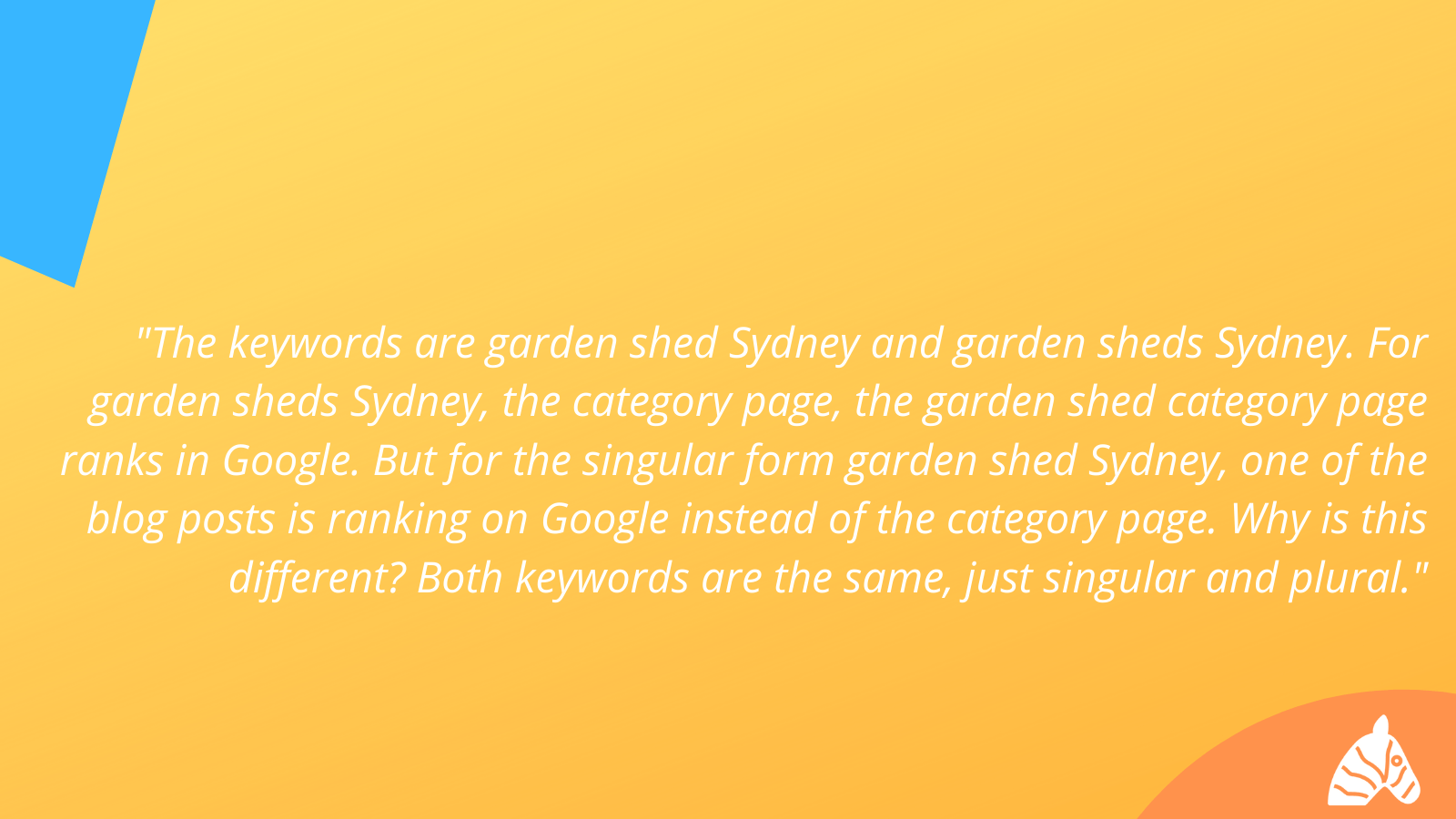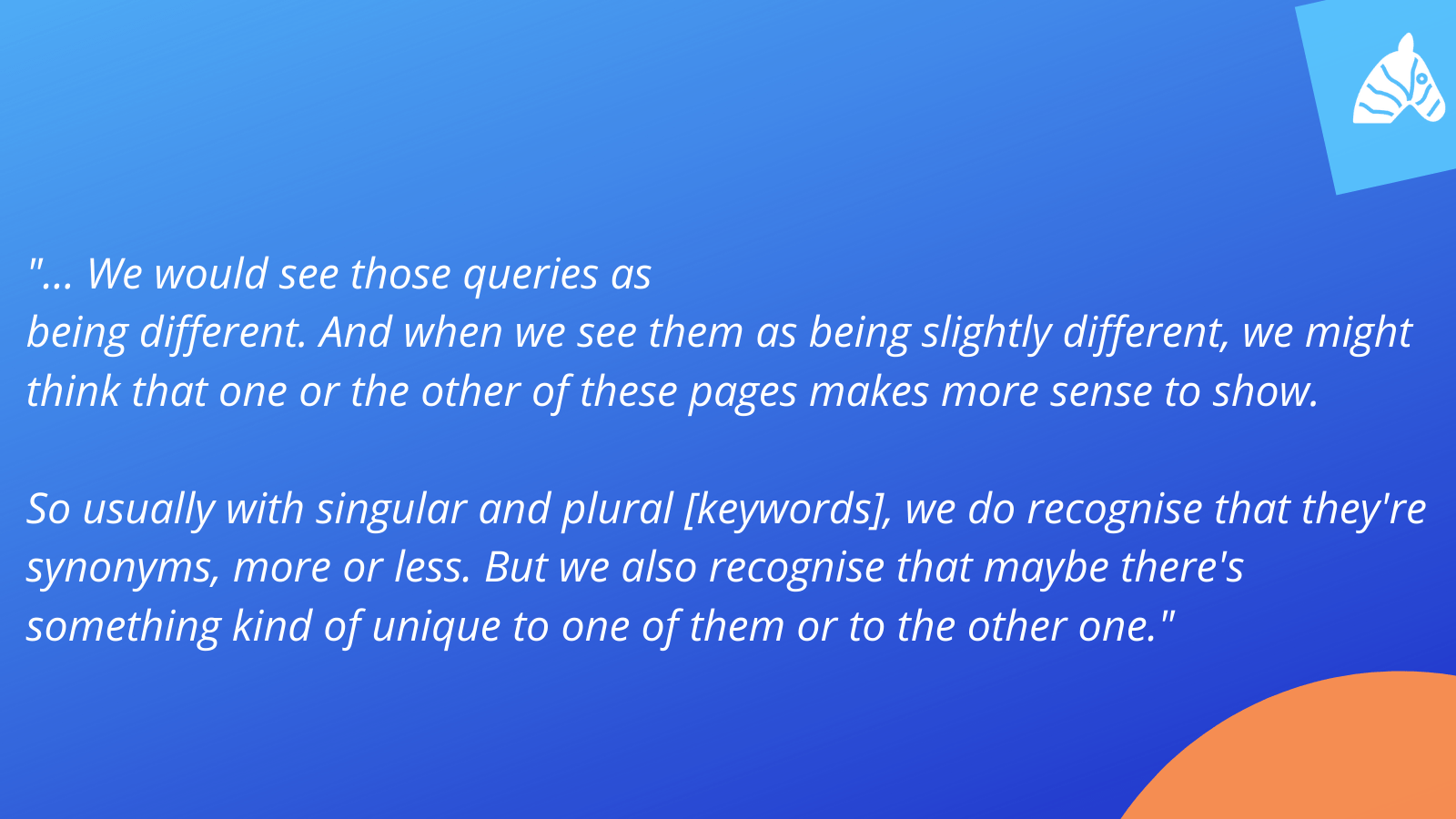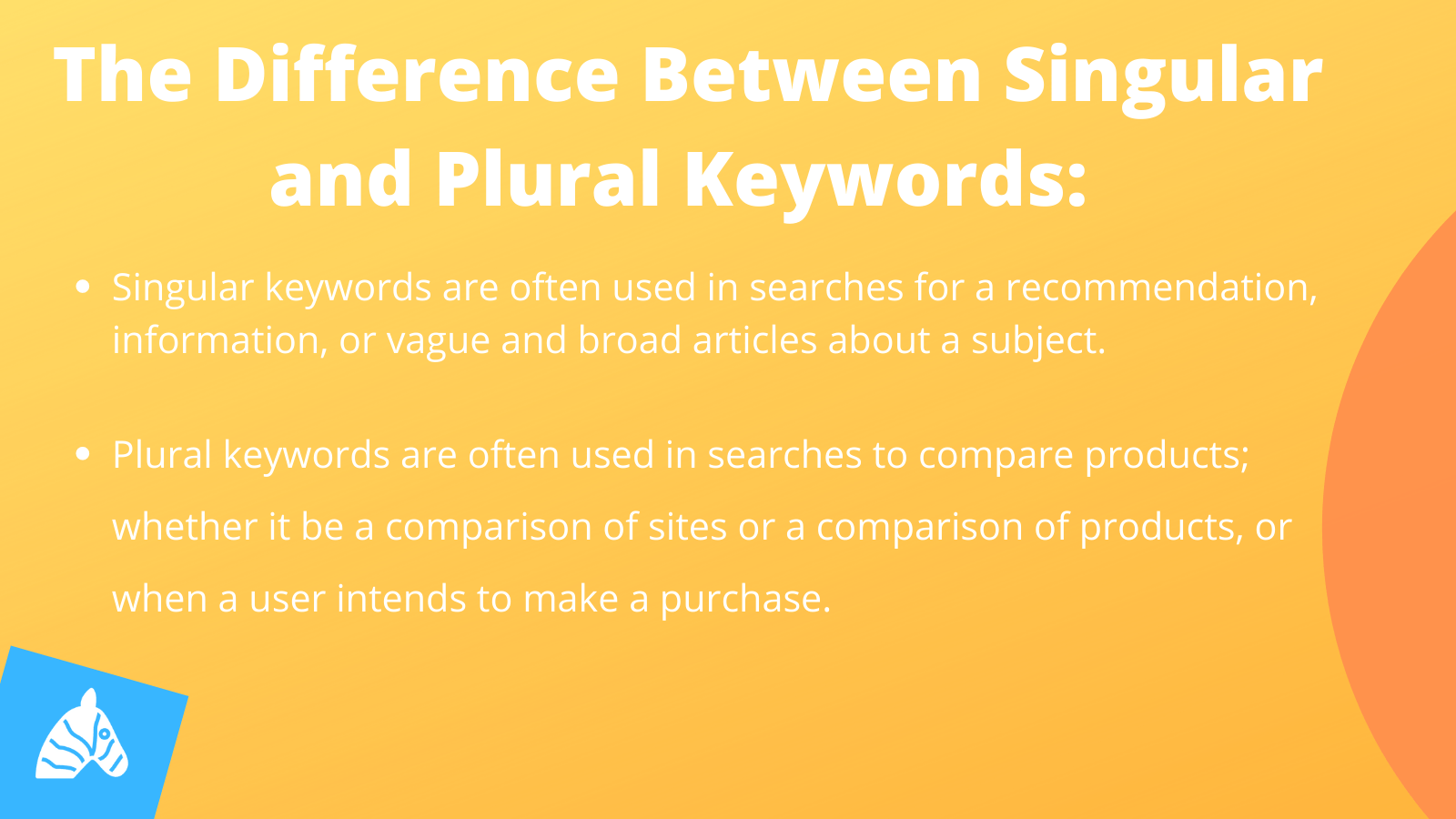
In a Google Hangouts session on June 26th, a publisher posed a question to Google’s John Mueller involving the rankings of singular and plural keywords that he is noticing with a client’s website. Speaking generally, John answers and explains why Google might be indexing and ranking very similar keywords differently.
Say you’re trying to market and rank a website that sells red jackets. You’re going to try and get pages to rank for both red jacket and red jackets. But for some reason, the search results for these keywords is entirely different, and your website performs very differently for each targeted key term. Why, when the terms are so similar and can be used interchangeable, does Google decide to present completely different search results?
The answer really comes down to satisfying searcher’s intent. As per usual, Google is working to provide the best possible experience for the user and their search query. But we’ll get to that later on. Let’s first dissect what John Mueller has to say about singular and plural keywords.
Here’s the question posed to John:

“The keywords are garden shed Sydney and garden sheds Sydney. For garden sheds Sydney, the category page, the garden shed category page ranks in Google. But for the singular form garden shed Sydney, one of the blog posts is ranking on Google instead of the category page. Why is this different? Both keywords are the same, just singular and plural.”
Why Does Google Show Different Results for Plurals and Singulars of a Keyword?
Firstly, John begins his answer by noting that it’s very difficult to provide a precise answer, without seeing the exact details. However, there is a specific reason this is happening. Google does see the singular and plural versions of a key term as being relevant for different search queries.
“… We would see those queries as being different. And when we see them as being slightly different, we might think that one or the other of these pages makes more sense to show.
So usually with singular and plural [keywords], we do recognise that they’re synonyms, more or less. But we also recognise that maybe there’s something kind of unique to one of them or to the other one.”

An important note to make – Google looks at key terms to match them with specific search queries. When making a search, users will sometimes use plurals for queries where they expect to see lists of products or services.
“If you’re looking for a plural, maybe you’re looking more for like a list or a comparison page or maybe a category page of different kinds of these items. So that’s something where our systems try to take that into account, and it can result in slightly different results being shown for one or the other.”
In essence, Google shows different results because user behaviour shows them that people are searching for different results when they use singulars and plurals of keywords. The reasons that the results will present differently will vary specifically for each variation, subject, and niche.
In terms of the specific question posed, it seems that the category page with the plural of “Garden sheds Sydney” was ranking for the search term as the category page satisfies the search intent for a listing of multiple products. In comparison, the singular version “Garden shed Sydney” is ranking in a blog post, as it satisfies the search intent of a user finding out more information about garden sheds in Sydney.
The Difference Between Singular and Plural Keywords

While the singular and plural versions of a keyword may be synonyms, Google’s algorithm will sometimes identify the variations of the term to be relevant to different search queries. Here’s where singular and plural keywords can differ:
• Singular keywords are often used in searches for a recommendation, information, or vague and broad articles about a subject.
• Plural keywords are often used in searches to compare products; whether it be a comparison of sites or a comparison of products, or when a user intends to make a purchase.
While Google can recognise and understand that the plural and singular versions of a word refer to the same thing, the search result pages and the number of results are often still different; because what users expect from either differs slightly.
When conducting your keyword research and targeting keywords, it’s important to consider the intent of users searching for your keyword. If you are indeed selling red jackets, it’s important to include both variations of the keywords for specific pages. For example, you may target the plural of “red jackets” more frequently for category or product listing pages, and you might target “red jacket” in your informational content about the product.
Google is only becoming more sophisticated with satisfying search intent. Always striving to provide the best possible experience, Google is learning more and more about the ways users behave with keywords and what they expect from each search. If you want your content to rank well for specific search terms, you need to consider how a person will use the search engine to find your content.
Safari Digital are a leading team of SEO experts. Combining proven methodology with cutting-edge technology, we are passionate about helping small to medium-sized businesses achieve big results. If you’d like to learn more about how your business can improve with SEO and strategic traffic acquisition, get in touch with our expert SEO Perth team today.






